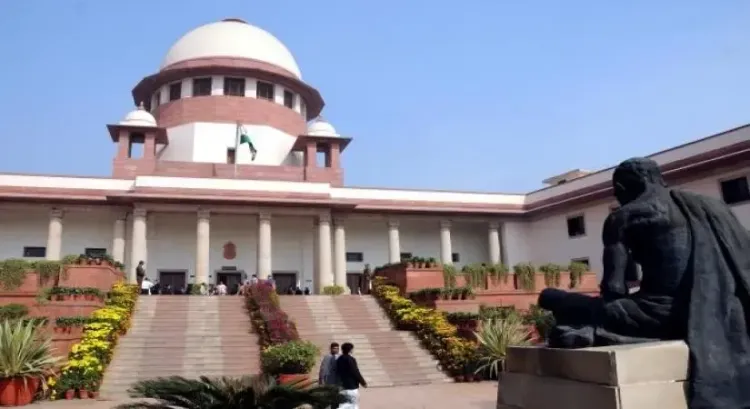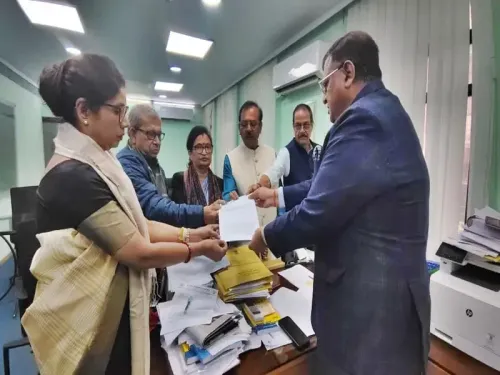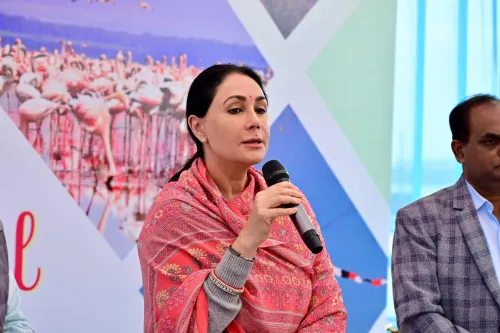Why Did the SC Summon UP's DG, Prisons, and Ghaziabad Jail Superintendent?

Synopsis
Key Takeaways
- The Supreme Court has taken a strong stance on judicial compliance.
- Failure to execute a bail order can lead to serious repercussions for jail officials.
- The case underscores the importance of accurate documentation in legal processes.
- Maintaining public trust in the justice system is crucial for societal stability.
- Legal proceedings must be transparent and consistent with judicial directives.
New Delhi, June 24 (NationPress) The Supreme Court has summoned the Director General (DG) of Prisons in Uttar Pradesh and the Senior Superintendent of Ghaziabad District Jail due to the failure to release an accused despite having been granted bail. This situation arose because a specific sub-section of the anti-conversion law, under which the individual was charged, was missing from the bail order.
Labeling the situation a “travesty of justice”, a Bench comprising Justices K.V. Viswanathan and N.K. Singh instructed the Senior Superintendent of Ghaziabad District Jail to appear personally before the Supreme Court at 10:30 AM on Wednesday. The DG of Prisons was directed to join via video conference.
After being denied release by the jail administration, the accused, Aftab, filed a miscellaneous application with the apex court to modify the bail order to specifically include Sub-section (1) of Section 5 of the Uttar Pradesh Prohibition of Unlawful Conversion of Religion Act, 2021.
The application, submitted by advocate Abhishek Singh, indicated that the release order from the Ghaziabad Additional District and Sessions Judge was rejected by the jail authorities on the basis that the details recorded in the jail register did not align with those in the release order.
The apex court expressed serious concern regarding the alleged disregard for judicial directives and suggested the possibility of initiating contempt proceedings against the jail officials if the claims in the petitioner’s application were substantiated.
Simultaneously, the Bench led by Justice Viswanathan warned the petitioner about potential severe repercussions, including the possibility of revoking the bail order, should the allegations against the jail officials prove to be false.
On April 29, the Supreme Court had granted bail to Aftab, considering the fact that his parents belong to both Hindu and Muslim backgrounds, and that the marriage took place following Hindu traditions.
By allowing the criminal appeal, the then CJI Sanjiv Khanna-led Bench directed that the accused be released on bail during the ongoing trial related to a criminal case under Section 366 of the Indian Penal Code (IPC), 1860 and Sections 3 and 5 of the Uttar Pradesh Prohibition of Unlawful Conversion of Religion Act, 2021.
The top court instructed the trial court to set the terms and conditions of the bail and required the accused to provide a mobile number for contact by the Investigating Officer/Station House Officer to verify his whereabouts while on bail. The court also clarified that its observations in the bail order should not be interpreted as a judgment on the case's merits.










